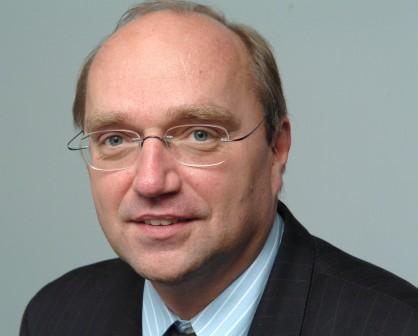
It is widely accepted that renewable and decarbonised hydrogen will need to play a major role in the EU’s future decarbonised energy market.
The first FSR online workshop will focus on decarbonised hydrogen produced from natural gas, or ‘blue’ hydrogen. In this special live event, we will analyse:
This online workshop seeks to identify the bottlenecks of blue hydrogen production and discusses policy options for resolving them.
Wednesday 15th April, 10.00-12.20
Moderated by Andris Piebalgs and Christopher Jones, Part-time Professors, EUI
Pre-event poll: Which of the technologies is the most likely to play a major role in the EU’s energy system in 2050?
10.00-10.05: Opening comments: Christopher Jones, Part-time Professor, EUI
10.05-10.35 The role of renewable and decarbonised hydrogen in the EU’s future energy mix; policy options, funding priorities, their potential, and bottlenecks that need to be
Klaus-Dieter Borchardt, Deputy Director-General, DG Energy, European Commission.
Hélène Chraye, Head of Unit, Clean Energy Transition, DG Research and Innovation, European Commission.
Stefaan Vergote, Adviser for Emission Reduction Strategies, Research & Innovation, DG Clima, European Commission
10.35-10.45 Audience questions/discussion
The case for Pyrolysis
10.45-10.55 Alex Barnes, Director, A. Barnes & Associates LTD
10.55-11.05: Stefan Petters / Dr. Klaus-Dieter Mauthner, GOU / CARBOTOPIA
11.05-11.15: Christopher Brandon, EH Group,
11.15-11.35: Audience questions/discussion
The case for Steam Methane Reforming and CCS
11.35-11.45: Henrik Solgaard Andersen, Equinor
11.45-11.55: Chris Gibson, Engineering Manager – CCUS & Hydrogen Group, Environmental Technology, BP
11.55-12.05 Audience questions/discussion
12.05-12.20: Concluding remarks:
Hélène Chraye, Head of Unit, Clean Energy Transition, DG Research and Innovation, European Commission.
Tudor Constantinescu; Principal Advisor, DG Energy
Workshop 2: Renewable Hydrogen
The potential for producing ‘green’ hydrogen; the state of technology and industrial demonstration, current cost projections; what needs to be done to bring the technology to maturity.
Wednesday 22nd April, 10.00 – 12.20
Moderated by Andris Piebalgs, Part-time Professor, EUI, and Christopher Jones, Part-time Professor, EUI
Pre-event poll: Which sector is the most perspective for the uptake of the renewable hydrogen? (Refining, chemicals, transport, buildings, power)
10.00-10.05: Opening comments: Andris Piebalgs, Part-time Professor, EUI
10.05-10.25: Introductory Presentations
Patrick Child, Deputy Director General and acting Director, DG Research, European Commission
Klaus-Dieter Borchardt, Deputy Director-General, DG Energy, European Commission
10.25-10.40: Audience questions/discussion
10.40-10.50: Jorgo Chatzimarkakis, Secretary General, Hydrogen Europe
10.50-11.00: Dolf Gielen, Director, IRENA Innovation and Technology Centre
11.00-11.10: Daan Peters, Associate Director, Guidehouse
11.10-11.20: Oksana Dembitska, VP for Green Hydrogen, BP
11.20-11.45: Audience questions/discussion
Respondents
11.45- 11.55: Catrinus Jepma, Professor, University of Groningen
11.55-12.05: Ronnie Belmans, Professor, KU Leuven
12.05-12.20 Concluding remarks
Christopher Jones, Part-time Professor, EUI
Tudor Constantinescu, Principal Advisor, DG Energy, European Commission
This initiative will cover a wide range of issues, including how to ‘kick-start’ the renewable and decarbonised gas market (in order to drive down costs and catalyze sufficient capacity in time for the 2050 decarbonisation deadline), how to link the RES and nuclear electricity and gas markets with one-another and the ETS (including notably through Guarantees of Origin), and how to ensure that the principles of the Internal Gas Market are retained, to mention but a few.
An evidenced-based approach is vital if the EU is to find a cost-effective and efficient answer to these issues. Fully understanding the costs (and future cost curves) and potential of the different emerging hydrogen technologies will be essential in order to enable the Commission to design such a proposal.
For example, unless we have a clear view on inter alia the following issues, it is not possible to determine how and when to support the development of an H2 industry, or how to ensure that any public support during the first years of development is best targeted:
The Florence School of Regulation proposes two Online Workshops to examine and discuss these issues in depth. The first will focus on decarbonised hydrogen produced from natural gas, or ‘blue’ hydrogen. The second will examine the potential regarding renewable hydrogen.



To meet, discuss and learn in the channel that suits you best.